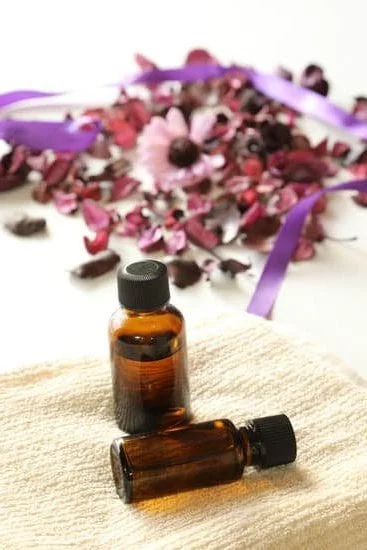Labour aromatherapy oils are becoming increasingly popular among expectant mothers as a natural method for pain relief and relaxation during childbirth. The use of essential oils has been known to provide various benefits to women in labor, from reducing anxiety to promoting contractions. In this article, we will explore the concept of using aromatherapy oils during labor, the benefits they offer, and how to choose the right oils for a safe and effective experience.
Using aromatherapy oils during labor involves the use of essential oils extracted from plants to support a woman’s physical and emotional well-being throughout childbirth. These oils have been found to provide relief from labor pains, reduce stress and anxiety, and create a calming environment for both the mother and her birthing team. Additionally, certain essential oils have properties that can help stimulate contractions, making them particularly beneficial during the later stages of labor.
When it comes to choosing the right aromatherapy oils for labor, there are important factors to consider such as safety precautions, types of essential oils available, and how to properly dilute them for use during childbirth. Understanding these aspects is crucial in ensuring a positive experience with aromatherapy oils during labour while prioritizing the well-being of both mother and baby.
Choosing the Right Aromatherapy Oils for Labor
When it comes to choosing the right aromatherapy oils for labor, it’s essential to understand the different types of essential oils and their properties. Each essential oil has unique therapeutic benefits, and knowing which ones are safe and effective for use during labor is crucial. Some popular choices for labor aromatherapy oils include lavender oil, frankincense oil, and clary sage oil.
Factors to consider when choosing the right oils for labor include the safety of the essential oil, its potential effects on contractions and pain relief, as well as its ability to promote relaxation. It’s important to note that not all essential oils are safe for use during labor, so it’s essential to consult with a qualified aromatherapist or healthcare provider before using any specific oil.
Safety precautions when using aromatherapy oils during labor should also be taken into consideration. This includes properly diluting essential oils before use, as undiluted oils can be too potent and may cause skin irritation. Additionally, certain essential oils should be avoided during pregnancy due to their potential to stimulate contractions or cause adverse reactions.
When purchasing labour aromatherapy oils, ensure that you are buying from trusted sources that offer high-quality and authentic products. You can also look for reputable brands and suppliers of labor aromatherapy oils that have a good track record in producing pure and genuine essential oils. Remember to always read product labels carefully and seek recommendations from experts in the field to ensure you are using safe and effective aromatherapy oils during labor.
- Factors to consider when choosing the right oils for labor
- Safety of the essential oil
- Potential effects on contractions and pain relief
- Ability to promote relaxation
- Safety precautions when using aromatherapy oils during labor
- Properly diluting essential oils before use
- Avoiding certain essential oils that may stimulate contractions or cause adverse reactions
- Tips for ensuring the purity and authenticity of the essential oils you buy
- Purchasing from trusted sources
- Looking for reputable brands and suppliers
- Reading product labels carefully
Best Practices for Using Aromatherapy Oils During Labor
Using aromatherapy oils during labor can be a beneficial way to create a calming and soothing environment for the mother-to-be. When it comes to using labour aromatherapy oils, there are best practices that should be followed to ensure their safe and effective use.
First, it is important to properly dilute essential oils for labor. This can be done by mixing a few drops of the chosen essential oil with a carrier oil, such as almond oil or coconut oil. The recommended dilution ratio is typically 1-2% for adults, but it is best to consult with a qualified aromatherapist or healthcare provider for specific guidance based on individual circumstances.
Next, there are different application methods for using aromatherapy oils during labor. These can include massage, inhalation, or simply diffusing the oils into the air. Depending on the desired effect, such as relaxation or pain relief, different application methods may be more suitable.
Creating a calming environment with aromatherapy oils is also important during labor. This can be achieved by diffusing the chosen essential oils in a room, using a portable diffuser if necessary. Additionally, soothing music and dim lighting can complement the use of aromatherapy oils to enhance relaxation and comfort during labor.
Incorporating these best practices when using labour aromatherapy oils can contribute to a positive birthing experience for both the mother and her support team. By carefully choosing and applying essential oils in line with safety precautions, mothers can benefit from their calming and pain-relieving properties throughout the labour process.
Popular Aromatherapy Oils for Labor
Lavender Oil: Its Calming and Pain-Relieving Properties
One of the most popular aromatherapy oils for labor is lavender oil, known for its calming and pain-relieving properties. Many women find that the soothing scent of lavender helps to create a peaceful and relaxing environment during labor. In addition to promoting relaxation, lavender oil is also believed to have analgesic properties, which can help in reducing labor pains. It is often used in massage oils or diffused into the air to create a serene atmosphere for expecting mothers.
Frankincense Oil: Its Ability to Promote Relaxation and Reduce Anxiety
Another essential oil commonly used during labor is frankincense oil, prized for its ability to promote relaxation and reduce anxiety. The warm, earthy aroma of frankincense can have a grounding effect, helping women to stay calm and focused during the intensity of childbirth. Its anti-inflammatory and sedative properties make it a valuable aid in managing stress and promoting emotional well-being during labor.
Clary Sage Oil: Its Potential to Stimulate Contractions and Ease Labor Pains
Clary sage oil is often recommended for use during labor due to its potential to stimulate contractions and ease labor pains. This fragrant essential oil is believed to mimic the effects of oxytocin, the hormone responsible for triggering uterine contractions.
However, it is important to note that clary sage should be used with caution and under the guidance of a healthcare provider, as excessive amounts may lead to overly strong contractions or other complications. When used appropriately, clary sage oil can be a valuable tool in supporting a smoother labor experience.
With proper knowledge of these popular aromatherapy oils for labor – lavender, frankincense, and clary sage – expectant mothers can explore their benefits and potentially incorporate them into their birth plans for a more comfortable childbirth experience.
Personal Stories of Women Who Have Used Aromatherapy Oils During Labor
Using aromatherapy oils during labor has become increasingly popular among women seeking natural and holistic approaches to childbirth. Many have found success in using essential oils to manage pain, reduce anxiety, and create a calming environment during the labor process. Personal stories from women who have used aromatherapy oils during labor can provide valuable insight into the effectiveness of these natural remedies.
One common theme among the experiences shared by women who have used labour aromatherapy oils is the ability of certain oils to promote relaxation and alleviate discomfort. Lavender oil, in particular, has been widely praised for its calming properties and its ability to ease both physical and emotional stress during labor. Many women have reported feeling more at ease and better able to cope with contractions when using lavender oil as part of their childbirth experience.
In addition to promoting relaxation, some women have noted that certain aromatherapy oils, such as clary sage oil, may help stimulate contractions and progress labor. While this effect may not be suitable for all women or all stages of labour, it highlights the diverse ways in which essential oils can potentially support the childbirth process.
Overall, these personal stories underscore the unique and individualized nature of using aromatherapy oils during labor, as each woman’s experience may vary based on her own needs and preferences.
| Aromatherapy Oil | Effect |
|---|---|
| Lavender oil | Calming properties; alleviates physical and emotional stress |
| Clary sage oil | Potential to stimulate contractions; progress labor |
Research and Science Behind Aromatherapy Oils for Labor
Aromatherapy has been used for centuries as a natural way to promote relaxation, reduce stress, and alleviate pain. When it comes to labor, the use of aromatherapy oils has gained popularity as a complementary method to support women during childbirth. There is scientific evidence that supports the use of aromatherapy oils for labor, showcasing their potential to positively impact the labor process.
Numerous studies have explored the effects of aromatherapy oils on labor outcomes. Research has shown that certain essential oils, such as lavender and clary sage, can help reduce anxiety and fear during labor, leading to a more positive birth experience.
Additionally, these oils have been found to have analgesic properties, which can help manage pain and discomfort during childbirth. The science behind these effects lies in the ability of aromatic compounds in the oils to stimulate receptors in the brain that regulate emotions and pain perception.
Furthermore, studies have also investigated how aromatherapy oils can influence physiological processes during labor. For example, research suggests that inhaling certain essential oils can impact hormone levels, potentially promoting the progression of labor by stimulating uterine contractions. This scientific understanding of how aromatherapy oils can affect both psychological and physiological aspects of labor provides valuable insights into their potential benefits for women during childbirth.
Aromatherapy Oils for Postpartum Recovery
Aromatherapy oils can also play a significant role in aiding postpartum recovery. After the intensity of labor, new mothers often experience physical discomfort and emotional stress. The use of specific essential oils can help promote healing, relaxation, and overall well-being during this delicate postpartum period.
Healing Properties of Aromatherapy Oils
Certain aromatherapy oils possess healing properties that can support the body’s natural recovery process after childbirth. Oils such as lavender, chamomile, and geranium have been traditionally used to soothe sore muscles, reduce inflammation, and promote skin regeneration. These oils can be applied topically through massage or added to a diffuser to create a calming atmosphere conducive to rest and healing.
Emotional Support and Relaxation
In addition to physical healing, aromatherapy oils are known for their ability to provide emotional support and relaxation. Postpartum emotions can range from joy to feelings of overwhelm and anxiety. Essential oils like ylang-ylang, bergamot, and rose are often used to uplift mood, relieve stress, and promote a sense of calm. By creating a soothing environment with the use of these oils, new mothers can find comfort and emotional balance during this transitional period.
Supporting Hormonal Balance
The hormonal changes that occur after giving birth can result in mood swings and feelings of imbalance. Aromatherapy oils like clary sage and geranium are believed to have hormone-balancing properties that can aid in regulating hormones during the postpartum phase. Incorporating these oils into a daily self-care routine may help in maintaining emotional stability and promoting overall well-being during the postpartum period.
By using labour aromatherapy oils for postpartum recovery, women can take advantage of the natural healing properties of these essential oils while also experiencing emotional support during this significant phase of life. It is important to consult with qualified professionals or aromatherapists before using any essential oil for postpartum recovery to ensure safety for both mother and baby.
Where to Purchase High-Quality Labour Aromatherapy Oils
In conclusion, incorporating aromatherapy oils into the labor and delivery process can offer numerous benefits for expectant mothers. From promoting relaxation and reducing anxiety to potentially easing labor pains and stimulating contractions, essential oils have been found to be a valuable addition to the birthing experience. As with any natural remedy, it is crucial to choose the right aromatherapy oils and use them safely and effectively during labor.
When it comes to selecting high-quality labour aromatherapy oils, it is important to do thorough research and only purchase from trusted sources. Look for reputable brands and suppliers that prioritize the purity and authenticity of their essential oils. This may involve seeking out specialized stores, wellness boutiques, or online retailers that are known for their commitment to offering authentic and high-quality aromatherapy products.
To ensure that you are purchasing genuine labour aromatherapy oils, consider looking for certifications such as “100% pure” or “therapeutic grade” on product labels. Additionally, take advantage of customer reviews and testimonials to gauge the quality of essential oils offered by different brands or suppliers. By investing in authentic and high-quality labour aromatherapy oils, expectant mothers can enhance their birthing experience with the therapeutic effects of these natural remedies.
Frequently Asked Questions
What Essential Oil Is Best for Labor?
The essential oil often recommended for labor is lavender oil. Its calming and relaxing properties can help ease the anxiety and stress associated with childbirth, making it a popular choice for many women.
What Oil Helps Induce Labor?
Among the oils believed to help induce labor, one of the most commonly cited is evening primrose oil. It contains a substance called prostaglandins which may help ripen or soften the cervix, potentially leading to the onset of labor.
Does Clary Sage Really Induce Labor?
Clary sage has been traditionally used to induce labor due to its reported ability to stimulate uterine contractions. However, it’s important to note that there isn’t enough scientific evidence to fully support these claims, so its effectiveness in inducing labor remains uncertain. Always consult with a healthcare professional before using any essential oils for this purpose.

Are you looking for a natural way to improve your health and wellbeing?
If so, aromatherapy may be the answer for you.





